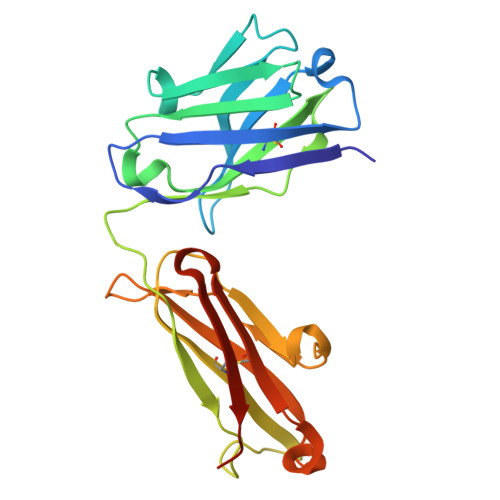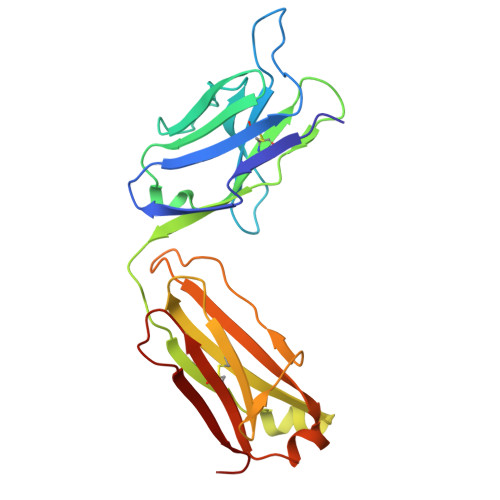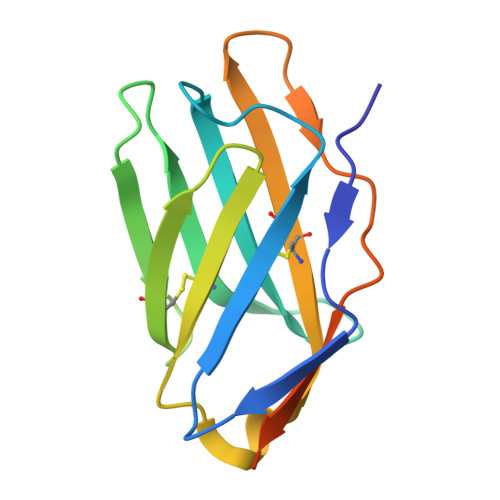NI-3201 Is a Bispecific Antibody Mediating PD-L1-Dependent CD28 Co-stimulation on T Cells for Enhanced Tumor Control.
Majocchi, S., Lloveras, P., Nouveau, L., Legrand, M., Viandier, A., Malinge, P., Charreton, M., Raymond, C., Pace, E.A., Millard, B.L., Svensson, L.A., Kelpsas, V., Anceriz, N., Salgado-Pires, S., Daubeuf, B., Magistrelli, G., Gueneau, F., Moine, V., Masternak, K., Shang, L., Fischer, N., Ferlin, W.G.(2025) Cancer Immunol Res : OF1-OF19
- PubMed: 39760515
- DOI: https://doi.org/10.1158/2326-6066.CIR-24-0298
- Primary Citation of Related Structures:
8S6Z - PubMed Abstract:
Despite advances in cancer immunotherapy, such as targeting the PD-1/PD-L1 axis, a substantial number of patients harbor tumors that are resistant or relapse. Selective engagement of T-cell co-stimulatory molecules with bispecific antibodies may offer novel therapeutic options by enhancing signal 1-driven activation occurring via T-cell receptor engagement. In this study, we report the development and preclinical characterization of NI-3201, a PD-L1×CD28 bispecific antibody generated on the κλ-body platform that was designed to promote T-cell activity and antitumor function through a dual mechanism of action. We confirmed that NI-3201 blocks the PD-L1/PD-1 immune checkpoint pathway and conditionally provides T-cell co-stimulation via CD28 (signal 2) when engaging PD-L1+ tumors or immune cells. In systems with signal 1-primed T cells, NI-3201 enhanced potent effector functionality: in vitro through antigen-specific recall assays with cytomegalovirus-specific T cells and in vivo by inducing tumor regression and immunologic memory in tumor-associated antigen-expressing MC38 syngeneic mouse models. When T-cell engagers were used to provide synthetic signal 1, the combination with NI-3201 resulted in synergistic T cell-dependent cytotoxicity and potent antitumor activity in two humanized mouse tumor models. Nonhuman primate safety assessments showed favorable tolerability and pharmacokinetics at pharmacologically active doses. Quantitative systems pharmacology modeling predicted that NI-3201 exposure results in antitumor activity in patients, but this remains to be investigated. Overall, this study suggests that by combining PD-L1 blockade with safe and effective CD28 co-stimulation, NI-3201 has the potential to improve cancer immunotherapy outcomes, and the clinical development of NI-3201 for PD-L1+ solid tumors is planned.
Organizational Affiliation:
Light Chain Bioscience - Novimmune SA, Geneva, Switzerland.





















